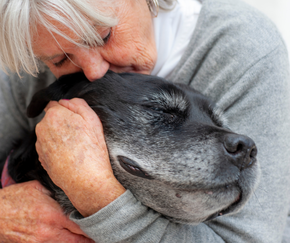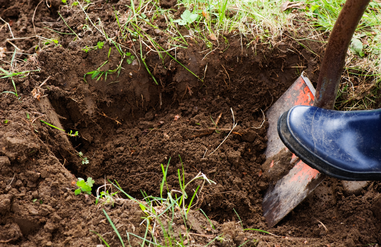- Published on

Overall I’m slowly emerging from my grief pit after saying ‘goodbye’ to Howard and I’m feeling a lot of gratitude.
I’m feeling gratitude for my family and for Julie at Ritual Bough and Dr. Doty. I think Howard’s Rainbow Bridge Sendoff was the best possible party I could have thrown for him. His last day was spent surrounded by familiar faces and tasty snacks. His last waking moments were in the comfort of his own home, literally tearing through a plastic bag for bacon crumbs because I couldn’t open it fast enough.
I’m feeling gratitude for ugly crying and for all the people in my life willing to witness me doing it. Like my sister, who said “yes” to arguably the worst party invitation of all time (hey, save the date, it’s a euthanasia) and who drove us to the crematory with me sitting on the floor of the backseat sobbing.
I’m feeling gratitude for my crematory families who, despite their own grief, recognize my own hurt and reach out in ways that I never could have dreamed of. It’s always an honor to take care of other people’s beloveds. But to be walking the path at the same time has been an experience I’ll never forget.
I’m feeling gratitude for my family and for the experiences that led me to open a crematory in the first place. Caring for mortal remains has been a part of my professional life for over a decade. I felt stripped of something when Booty died in 2021. Obviously, the hole he left in my life is part of it, but it kind of crushed me to imagine a stranger was going to be the last person to touch his sweet body. I wanted to be the last person who touched Howard.
And I’m feeling a ton of gratitude for being so lucky to have had Howard’s gentle soul in my life. I’m fundamentally a different person and his footprints are all over my heart.
In a lot of ways this whole experience – the intentionality behind crafting his exit from this world - has made it easier, I think, for me to draw a line from his last breath to experiencing gratitude.
But I’m still human and it doesn’t take much for me to dip back into just feeling really, really sad again. Because I was the last person to touch Howard. And I won't ever get to touch him again.






